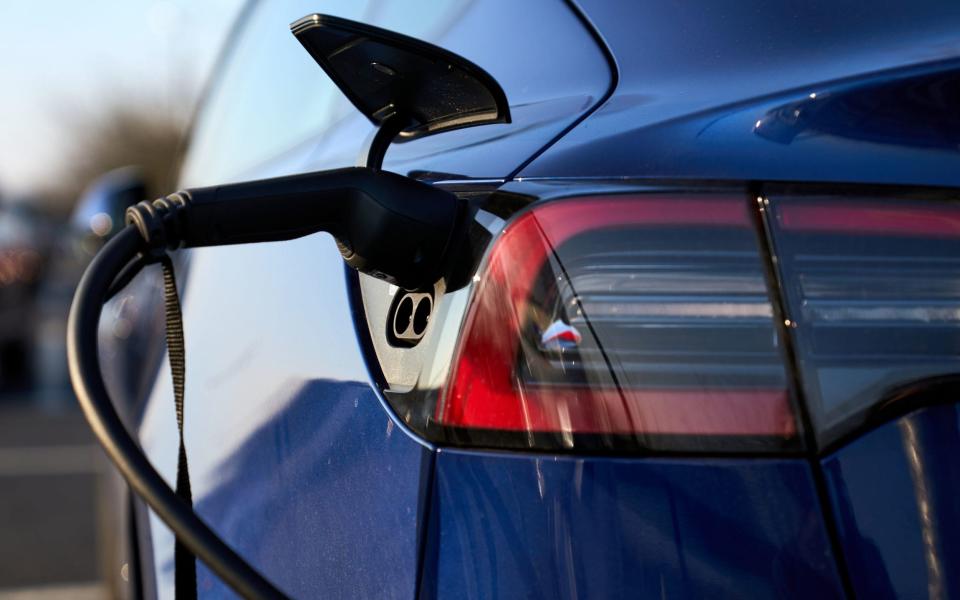Interest in electric cars slumps by two thirds as high prices wipe out savings

Interest in electric cars has slumped as electricity prices and falling petrol costs have erased the benefits of owning a plug-in.
Searches for battery-powered vehicles have dropped by two thirds since early 2022, according to Britain’s biggest online car marketplace AutoTrader.
Interest has waned because of surging electricity prices and the end of Government grants for plug-in vehicles. Combined with falling petrol prices, it has narrowed the price advantage per mile of driving an electric vehicle.
High upfront costs are also proving a hurdle, given the cost of living crisis. New battery-powered cars are now on average 37pc more expensive than petrol and diesel models, AutoTrader said in its Road to 2030 report.
The company warned the Government was at risk of “veering off-track” from its ambition to ban sales of new petrol and diesel cars by 2030 unless more was done to encourage electric vehicle (EV) ownership.
Ian Plummer, commercial director of Auto Trader, said: “The goal of mass adoption is at risk unless we use the tax system inventively to spur on EV purchases and accelerate demand.”
Carmakers including Tesla and Ford have been cutting the price of new electric vehicles (EVs) this year amid signs of slowing demand among buyers.
Falling petrol costs and stubbornly high electricity prices have eroded the benefits of running a battery-powered car.
Heavy road users can still make savings but making the maths stack up means relying on home charging.
EV owners with a home charger can save up to £130 for every 1,000 miles by charging at off peak overnight rates, according to AutoTrader’s analysis. However, the savings reduce to just £40 for those using public chargers.
The Government needs to make inroads towards cheap and plentiful public charging to win buyers over, said Mr Plummer.
He said: “While the extra £380m announced in March to improve charging infrastructure will help, the goal of mass adoption is at risk unless we use the tax system inventively to spur on EV purchases and accelerate demand.”
The news comes amid concerns that cars are struggling to sell in the used market as buyers have little way to tell what condition a battery is in.
More pressure could be on the way for EVs in the form of cheaper combustion cars.
Investment bank UBS has estimated that global car production will exceed sales by 6pc this year, leaving an excess of five million vehicles that will require price cuts to shift.
The Government offered drivers grants of £1,500 off plug-in cars under £32,000 but scrapped the subsidies unexpectedly last June.

 Yahoo Finance
Yahoo Finance 